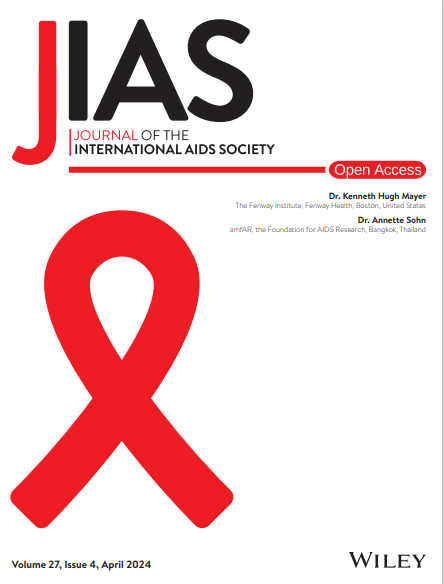Effects of Stop-Work orders on HIV testing, treatment and programmes for prevention of vertical transmission in four sub-Saharan African countries
Abstract
Introduction
Beginning in late January 2025, Stop-Work orders and contract cancellations have disrupted HIV programmes supported by the President's Emergency Plan for AIDS Relief (PEPFAR). We assessed the effects on HIV service delivery in four African countries.
Methods
Weekly aggregate HIV services data from a convenience sample of 165 Center for Disease Control and Prevention (CDC)-funded, ICAP-supported facilities—22 in Angola, 75 in the Democratic Republic of the Congo (DRC), 20 in South Sudan and 48 in Zambia—were analysed. We compared data from pre-Stop-Work (7 October 2024–23 January 2025), Stop-Work (24 January 2025–11 February 2025) and post-resumption (12 February 2025–31 March 2025) phases. We examined the number of individuals: (1) who tested for HIV; (2) receiving index testing; (3) had HIV-positive results/yield; (4) initiated antiretroviral therapy (ART); as well as (5) number of pregnant women with known HIV status; and (6) number of HIV-exposed infants who received early infant diagnosis (EID) testing. We used phase-specific weekly averages, relative percentage changes across phases and linear trend tests to measure the magnitude of disruptions and recovery.
Results
In Angola, DRC and Zambia, significant declines in number of HIV-positive tests (−58%, −34%, −17%) and ART initiations (−16%, −32%, −17%) were observed across the three phases with limited recovery in number of positive tests in Zambia and ART initiations in Angola. In DRC and Zambia, HIV testing (−33%, −35%), including index testing (−37%, −72%), significantly declined; additionally, HIV testing of pregnant women significantly declined (−28%) in DRC. In Angola and Zambia, EID testing declined (−12%, −18%) with limited recovery. In Angola, HIV testing (2476→2205→2519), including testing for pregnant women (280→ 233→ 287), rebounded in the post-resumption phase; in DRC, EID (6.5→6.3→7.9) rebounded. There were increases in HIV testing yield in Zambia (2.8%→3.1%→4.0%) and index testing (20→24→36) in Angola. No reductions were observed in South Sudan.
Conclusions
Stop-Work orders and award terminations have resulted in substantial short-term reductions in the delivery of HIV testing and treatment services. Long-term funding disruptions necessitate careful planning, realistic timelines and investment in cost-effective service models to sustain the gains and maintain the momentum in the global HIV response.


 求助内容:
求助内容: 应助结果提醒方式:
应助结果提醒方式:


